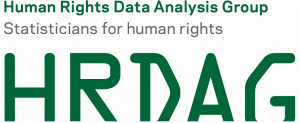Timor-Leste Op-Ed
Defending Human Rights Data And The Possibility of Justice In East Timor
By Patrick Ball and Romesh Silva
On June 5th, armed gangs broke into the offices of the Commission for Reception, Truth and Reconciliation (CAVR) in Dili, East Timor and stole their motorbikes.
Many human rights workers wondered whether the mobs would soon return to loot the irreplaceable paper records used by the CAVR to compile a definitive report on human rights abuses during the Indonesian occupation of East Timor from 1975-1999.
The release of this report was preempted by the recent violence in Dili. But in the midst of the chaos, Australian military forces stepped in to protect the CAVR building and the historical memory of the Timorese.
We thank the Australian military for defending efforts to secure justice and defeat the culture of impunity in East Timor. Such actions refute recent statements in the Australian press that paint East Timor as a failed state and suggest that life there was better under the Indonesian occupation.
Preserving human rights evidence in East Timor is not only required by international treaties, it is necessary to protect witnesses and prevent another round of violence.
Earlier this month, the office of the Serious Crimes Unit of the United Nations Mission of Assistance to East Timor was looted and its paper files and electronic records were stolen and destroyed.
This unit was set up by UN Security Council Resolution 1272 to investigate the violence surrounding the Timorese independence vote in August of 1999. Investigators uncovered extensive evidence of crimes committed by Timorese militias and Indonesian forces during the lead-up to and after the vote.
These prosecutions will now probably never happen because the UN investigators failed to protect evidence of serious human rights violations and back up these data. Instead of viewing information as a strategic tool, and protecting it appropriately, they allowed the Timorese to be robbed of their history.
The UN’s Serious Crimes Unit was already forced to destroy their East Timor data once before during the violence surrounding the 1999 independence vote. The failure of the UN to protect this evidence now creates an environment of impunity, squanders an opportunity for justice, puts witnesses at risk and sets the stage for another round of killing. If those who stole this information want to know who is providing evidence about them, they now have a handy hit list.
The technology needed to protect this data is not complicated or expensive. There are many private sector vendors such as Sun Microsystems or IBM which provide sophisticated strategies for secure information storage and retrieval. Products such as these are used extensively by governments and private sector companies to protect their data.
Each time a sensitive document was saved in Dili, it should have been stored in encrypted form and copies immediately sent to servers in New York and Geneva. Internet connectivity in East Timor is more than adequate for this low-volume task. To do less not only fails the objectives of the mission, but potentially creates security problems for the Timorese worse than those the UN Mission was deployed to ameliorate.
If these high-end solutions are out of reach, our nonprofit organization, Benetech®, offers a free, customizable, secure document solution that UN investigators could have used. Our system, called Martus, is a simple database that allows groups to share data in an encrypted form and store that data on a free worldwide network of secure servers. Martus is now used by grassroots human rights activists in Iraq, Guatemala, Colombia and the Philippines to protect sensitive information.
There are copies of Martus CDs in Dili that we placed in the hands of various UN officials. In our professional opinion, the failure to protect this information constitutes strategic incompetence on the part of the UN’s information technology policy team.
The United Nations Security Counsel met recently to discuss how to best usher in a new era of peace in East Timor. Preserving evidence of past human rights abuses should be part of this plan. These measures create a firm foundation for stronger governance, help ensure accountable police and security forces and increase security for the entire region.
Patrick Ball and Romesh Silva work for the Human Rights Program of the Benetech Initiative in Palo Alto, California, USA. Their group has advised eight truth commissions, including the CAVR, on information management and statistical analysis of human rights data.
